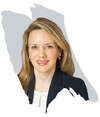The Female Perspective - Reflections and Insights from Women in M&A
To celebrate the first International Women’s Day after the inauguration of M&A Pulse in APAC, we spoke to four of the most senior women in Natixis’ M&A network, to better understand their motivations, the changes they have seen over the course of their careers, the factors they believe need to be in place for women to succeed in the industry, and why more women should consider a career in M&A.
Participants:

Angela Liang
Partner
Vermilion Partners

Anne Hiebler
Managing Director
Natixis Partners

Cathy Leonhardt
Managing Director and Co-Head of Global Consumer Retail Group
PJ SOLOMON

Miranda Zhao
Head of Mergers and Acquisitions, Asia Pacific
Natixis CIB

Moderator:
Kay Withers, Asia Pacific Communications, Natixis CIB
KW: Thank you everyone for joining us today and taking time out of your demanding schedules. Could I ask you all to briefly share with us the journey you have taken to get to the roles you hold today?
Angela Liang: I’m one of the partners at Vermilion Shanghai. I’ve been with Vermillion for over 13 years. Prior to that I was with Walt Disney China and GE Consumer Finance, and before that, Clifford Chance. Vermilion is focused on cross-border M&A advisory. My sector focus at Vermilion is healthcare, and I also actively work with other teams on consumer, general industrial, media, leisure, and entertainment related projects.
Anne Hiebler: I’m a Managing Director at Natixis Partners. After studying in French business school, I started my career right away in M&A. I’ve been doing this fantastic job for 25 years now, and I’m very happy with that. Although I’ve always been in M&A, when I think about my career, I feel like I’ve done thousands of different things, and that is really linked to the fact that M&A is a very diversified job, from where you begin to where you end. I also had the opportunity to work in many different institutions and teams, which has also provided variety.
"Companies are looking at diversity now more than ever before, and I think diversity in the broader sense of gender, ethnicity, background and other elements, are all important to a business’ success."
Cathy Leonhardt -

Cathy Leonhardt: I co-head the Consumer Retail practice at PJ SOLOMON, focusing on retail and direct-to-consumer channels and apparel, luxury, home, beauty, personal care, and wellness categories. I went to the Kellogg Graduate School of Business at Northwestern University. After graduating Kellogg, I started my career in the M&A Group at Morgan Stanley and from there, I joined PJ SOLOMON. It surprises me when I put my bio in pitch books, but I’ve been an M&A banker for over 25 years now.
Miranda Zhao: I’m the Head of Mergers and Acquisitions at Natixis in Asia Pacific. I work closely with both various Natixis inhouse teams and with our boutiques in the region and globally. I’ve been working in IB since the beginning of my career. I started my career with Morgan Stanley in China, shortly after the bank started to recruit students from Chinese universities, then spent a few years in London with Morgan Stanley and Merrill Lynch before moving back to Asia. Right before joining Natixis in 2019, I was the Head of M&A for the overseas securities arm of China Everbright Group, a Chinese State-Owned conglomerate.
KW: Perhaps to expand on that a little further, was the decision to work in M&A a conscious one?
Angela Liang: I won’t say that moving into M&A is a conscious decision. When I was with Walt Disney, I mainly assisted with the business planning for Shanghai Disneyland and negotiations with the Shanghai Government. It was a fun job, and at Disney, I saw colleagues who had literally spent their whole career lives with the company. Working in the media/entertainment space was fun, but one thing I was always wondering about, was what’s the world like outside of the Mickey Mouse clubhouse? It was in 2008 when the Shanghai Disneyland project was temporarily put on hold, that I started to seriously think about what I wanted to do in the future. In my earlier career life, I worked at Clifford Chance where I was involved in many interesting projects including setting up Sino-foreign joint ventures, foreign companies making acquisitions/investments in China and across different sectors. When I rethought about my career plan, during the break of the Shanghai Disneyland project, I thought about doing different things and seeing a “bigger world”. I eventually joined Vermilion and entered into the M&A space, where I have been exposed to different sectors and projects of different nature. I did not move into M&A consciously, but I have spent over 13 years in the M&A world now, and I still enjoy it.

"You need to be able to learn on a constant basis throughout your career. You might do something 10 times one way, but on the next transaction, you might not be able to follow the same approach."
- Anne Hiebler
Cathy Leonhardt: I’d say likewise, it wasn’t really a conscious decision for me. I joined the Investment Banking division at Morgan Stanley, with the expectation of becoming a sector coverage officer, which is what I felt spoke to my skillset at that time. During training, the M&A Operations officer asked me to spend my first year in the M&A department, which was unusual, as the first year M&A associates were typically comprised a small group of former analysts. MS was number one in global M&A at that time so it was an exciting place to be. I spent my first year as an M&A associate, and from then on I was hooked.
When I started at Morgan Stanley, I was a generalist. I worked on M&A transactions in a wide range of sectors including oil and gas, paper and forest products, pharmaceuticals, technology, transportation. Several years into my career at MS I began to work more consistently on retail and consumer transactions and really enjoyed it. Interestingly my path to PJ SOLOMON was through a retail transaction. Representing Sears in the acquisition of Lands’ End, I met a team at PJ SOLOMON which was representing on the sell side . PJ SOLOMON was very well known for consumer and retail advisory, So it was almost a natural transition for me and enabled me to focus my career on the sector that interested me the most.
Miranda Zhao: Yes, it’s a similar story for me. After working for Morgan Stanley in Asia, I was very fortunate to be given the opportunity to move to the M&A team in the Morgan Stanley London office, and that’s where I gained increasing exposure to M&A, working on large European transactions across sectors. The M&A market in Europe at that time was much more active compared to Asia. After 3 years in London I moved back to Asia, then started to focus more on M&A transactions in addition to capital markets and financing projects for Asian clients, and my career evolved naturally from there. So not exactly a conscious decision, but a natural one based on opportunities and experiences nonetheless!
KW: What skills do you believe have helped you succeed in this field?
Angela Liang: I think that in order to play in the M&A world, you have to have basic technical skills and certain industry knowledge to begin with. After you have worked in the sector for a few years, what really makes you stand out, from my perspective, are soft skills, such as people skill. As we mainly focus on cross-border projects, there is always a cultural difference. Chinese companies and entrepreneurs are not very experienced in doing M&As, especially cross-border M&As. Helping both your client and the target understand how things work in different markets and different cultures is very important. You need to build trust with your client and with the target, be able to read between the lines and speak the same language they speak. In many cases, we work for international companies which are more experienced, perhaps more sophisticated, in doing an M&A project. But we usually spend equal time, if not more, with the less experienced targets, educating them about an M&A process. In order to do deals successfully with China, getting along with both sides of the equation is important.
The other success factor I see, is the ability to learn quickly. You don’t always get to pick the projects that you will work on. Sometimes a project is in a sector that you’ve never dealt with, where you have little knowledge. In that case, you need to do your homework and learn new things quickly. You’ll need to do a lot of desktop research and talk to people in the industry.
Anne Hiebler: I agree. Of course you have to develop the so-called ‘basic’ skills – being hard working, committed, mastering a mix of technical and soft skills, you have to be very rigorous, pay attention to detail, multitask, these are things you need on a day-to-say basis. If I take a step back, I think that more importantly, what you have to do is be able to be results oriented, because at some point, no matter whether you are "technically" right or wrong, you have to do a deal, and so you have to be very pragmatic. You also need to be able to learn on a constant basis throughout your career. You might do something 10 times one way, but on the next transaction, you might not be able to follow the same approach.
Finally, you have to have the right mix between doubt and self-confidence. You have to be convinced by the recommendations that you make to clients, of course, but you have to also be able to support your convictions with facts and sometimes technical or tactical analyses. And things have to make sense form a commonsense perspective too.
Being a woman, I think that different perspectives also play a role. In the M&A team, but also often on the client side, and within the other advisors, it is often the case that there are very few women. For me personally, my first boss was actually a woman, so maybe that helped my journey. But it’s true that in meetings you often feel that there is a lot of testosterone in the room, and people are sometimes very tough only because they disagree. Of course you need to be tough in negotiation – you have to know who your client is and you have to be able to negotiate the best deal for them – but as women, although it’s not purely a question of gender, we sometimes use a different approach. Even if we are equally tough in our position or recommendation, my experience is that women – at least from my perspective – can sometimes act with more empathy or be more rounded, while still showing disagreement for valid reasons. It can be very efficient as well.
"Inevitably you will face failed projects or other challenges when you work in M&A. For projects where you invest lots of time and energy but eventually go nowhere, you do feel a sense of loss and frustration. You have to be able to find your inner peace, because this is a feature of M&A."
Angela Liang -

Miranda Zhao: Very valid points. I do not believe women need to be overly aggressive to succeed in this male-dominated field - just as Anne mentioned, the balance of strength and empathy is a powerful combination to succeed in M&A, and it could be relevant to other sectors too.
You also need creativity, which goes hand in hand with constant learning. Every deal is different and the market is constantly changing – especially now with Covid – so in order to succeed, you need to be sensitive and thoughtful of all parties’ needs, whether these needs are communicated directly or not, and think from different people’s perspectives. Resilience is also critical – it’s not always easy to get deals done, so you need a fighting spirit and can’t give up easily. Finally, strategic thinking – I think this is even more important when you are leading a team – you have to be sensitive to market trends to take advantage of potential opportunities.
Both women and men have the qualities to excel in this field and I do believe gender and culture diversity brings the best result for our business and can help us provide the best service to our clients.
KW: Do you feel there is more participation from women in M&A today than when you started your career?
Anne Hiebler: Honestly, I’m not sure I really see so much of a difference. Perhaps more so on the lawyer side and with advisors like transaction services, but in pure banking M&A, I’m not sure there has been much measurable progress. In the various teams that I’ve been in, we always try to keep more diversity and parity when we are hiring junior bankers, but what I have observed is that when many women reach VP level, they tend to make a different choice and prioritize a different aspect of their life, and ultimately leaving M&A.
Personally I don’t believe it’s necessary to make such a hard choice. If you are really motivated and you want to continue a career in M&A, you can absolutely manage your work with family life. I’m not saying it is easy – it’s never easy no matter what industry you’re in – perhaps M&A is a little more difficult, but it’s possible.

"Success is a mindset from early on in your career - believing that as a woman you can lead and succeed. We have been fortunate to have female bosses early on to show us right from the beginning that it was possible."
- Miranda Zhao
Miranda Zhao: From my perspective, if I look back at the women I started my career in IB with, indeed there are not that many left still working in this area. They haven’t stopped working to focus on family life, but rather have switched career paths. For example, private equity, venture capital, or setting up their own funds or businesses. One former colleague actually totally changed career after working as an analyst for three years – she went back to school to pursue the career that she always dreamed about – becoming a doctor. Another became a TV presenter after deciding to go back to school for a doctorate degree.
Anne Hiebler: You’re right. And I feel that for those who have left M&A, it’s not necessarily that they want to work less, but rather their choice is guided by the fact that they want to have more control of their schedules. It is sometimes difficult in M&A to say no to a client or senior team members.
KW: What motivates you to stay in M&A?
Cathy Leonhardt: Why 25 years? That’s a good question! It’s not an easy job for sure. It really is about the deal making, the tactics and the strategies that are required to successfully transact that continue to motivate me and keep me interested.
On the sell side its marketing the business, identifying the factors that differentiate brands and businesses in the marketplace – what are the identifiers that really make a business different? We’re also in a market where the value drivers are constantly shifting, so it’s about how you stay ahead of that and market the elements of businesses that will create value longer term. It’s about finding the right buyer, orchestrating a process that will not only deliver the best value but also the best outcome for the client. It’s also a matter of pride to complete a successful transaction that achieves an outsized outcome for your client but also stands the test of time in terms of its value creation for the buyer, as was the case for example, when we sold Athleta to The Gap.
On the buy side it’s about what drives value for your client over time and price is only a part of that. One of the things we pride ourselves on is our advice, and sometimes the best advice we give to a client is telling them what deals not to do. We never want to be associated with a bad deal, because it impacts our client’s willingness and ability to transact going forward. We look very carefully at how a target business meet our clients’ criteria, how do we position a client to win if acquiring this business is critical to strategy, does it have long term value drivers, do we need exclusivity, do we have the right access to the target, how do we optimize price – it’s the complexity of deal making, which continues to engage me.
"To preserve your work life balance, you really have to trust yourself and be able to ignore what others may say about you and how you might organise your work. You focus on doing your job right and to the highest standard. "
Anne Hiebler -

Angela Liang: That’s right. There are never two identical projects in M&A, so from every project I work on, I usually get to learn something new. This can be challenging, but it can also be fun. Sometimes it’s a new subsector, sometimes an entirely new industry – which also means learning a host of new terminologies – or it could be a new structure, or new regulations. Through doing M&As and learning these different things, you genuinely feel that you are part of this ever-evolving world. If I compare M&A to my past experience, as I mentioned, some of my former colleagues spent their entire career lives at Walt Disney, and I’ve met clients who have spent their entire working lives in one sector – such as electronic components – and of course, they have an opportunity to become experts within their relevant industries, but on the flip side, they might have missed other things that could be equally or more interesting! My choice is to see as much as possible. While this means I probably won’t become a true expert in a particular industry, I can have good knowledge about one, two or three key sectors, while being able to see the whole world.
Miranda Zhao: I have a similar feeling. A theme that keeps coming up is the fact that every deal is different. The market environment is different, the sector is different, the dynamic of related parties is different, and the structure too can be innovative at times. The good thing about M&A is that it is rarely boring, and it is always very exciting to close a deal!
Cathy Leonhardt: Yes - and that’s the interesting part. I continue to learn new things on every deal and each experience makes me a better advisor.
KW: So obviously M&A is very time-demanding, and many women have to balance not only their careers, but also home-life responsibilities too. What conditions do you think need to be put in place for women to succeed (in M&A but more broadly in finance)?
Cathy Leonhardt: I think we should take one step back on this one. Companies are looking at diversity now more than ever before, and I think diversity in the broader sense of gender, ethnicity, background, and other elements, are all important to a business’ success. That’s also true of the advisory business. Women are an important part of the diversity mix, and we’ve seen dramatic improvement in terms of companies’ commitment to recruiting and retaining diverse professionals. This in turn creates a better environment for women to succeed.
Do I believe that it’s harder for a woman to be successful in IB? Yes - even outside of historical gender biases, it definitely requires more work. There is more for women to balance - families, children, households, charitable causes, and many other things fill our agenda in addition to our careers. When firms recognize the differences and the unique requirements of working women, that’s a great first step. As an example, Peter Solomon always had a rule that you had to be in your seat on time for the Monday morning meeting. I missed the meeting a few times, and someone questioned Peter as to why he never said anything to me. His reply was that I was a working mom with two small children. And I always appreciated that. So if we look at the conditions that need to be in place, I think firstly a recognition that it is harder for women to be successful hold senior roles or run a division or a group. We have more demands on our time and on our lives. But we also bring unique insights and capabilities that are important.

"Having a career you love and being a mother, having a family, are both equally important to me, and I try my best to get the most of the both and enjoy both, but it can be a struggle to balance and you have to learn to prioritize in different circumstances.."
- Miranda Zhao
Miranda Zhao: Yes, I very much appreciate what you are talking about.
It is easy to say that we need to balance work and family life, and I do believe it is harder for working mums, especially when kids are at a younger age. You try to balance things as best as you can, but inevitably there are times when you feel guilty for not spending more time with them. When we say “balance” – it means a lot of effort and hard work, and sometimes sacrifices for working mums. But it doesn’t mean it is not possible, and what’s important here is to always look at the positive side of it and try your best to get the most out of it – we grow, we learn, and we contribute all along the journey.
Cathy Leonhardt: You know they say if you want something done, give it to a working mom. I do think there’s something to that. There’s something about women in banking and finance who balance a lot of different things and it’s not just about work, leadership, deal making and family, but additional elements like charity and social causes. There are a lot of extraordinary women out there.
Miranda Zhao: I agree. Even though there are less women in this field, the women we do have in the industry really love their jobs and have certain characteristics that make them thrive in this kind of environment.
Cathy Leonhardt: Exactly. I think it’s about viewing the job more flexibly, recognizing the unique value-add women bring, but ultimately, it’s about recognizing the value in a broader diversity of team, talent to providing sound and informed advice.
KW: It’s clear that there are fewer women than men in top roles in M&A globally, what’s it like to be one of the only women in the decision-making room?
Anne Hiebler: It’s true – and honestly sometimes it can be a bit of a shock when you have more women in the room! But yes, sometimes when there are many people around the table, it can be difficult to break the discussion and say ‘hey, stop for a minute, why don’t we do it this way?’. People are set in their ways and it’s not always easy to find the right moment to change the perspective.
Miranda Zhao: When I was a VP I used to mentor young colleagues in the junior pool, and I would always hear feedback that female colleagues (at all levels) were ‘quiet’ or ‘less aggressive’ or ‘less visible’, despite the fact that they were very good at what they were doing.
Anne Hiebler: Yes, it’s an impression that many people have – and even myself. When I was younger I was performing well but “quietly” and I worked in an American bank, where the environment was very outspoken. In many cases, perception is reality and you have to be able to show what you think – people aren’t going to always ask you for your opinion. If you don’t raise your hand, you will be overlooked. This was a fantastic learning opportunity for me – not because I particularly enjoyed it or that I have become outspoken. I didn’t want to become like the people I was observing, but it was interesting to observe this style and attitude, and I saw how powerful it was and adapted what I saw to fit my style. Today, I’m still relatively quiet and I have my own way of doing things, but this experience helped me to develop my career.
Miranda Zhao: What you said is very powerful – It’s similar to my experience too – and I imagine other female bankers experience similar things.
MZ: So now that we’ve been in the industry for more than 20 years, how would you coach or advise junior female bankers? There’s a lot we can do in M&A, but how do we overcome this image that women are more quiet, less ‘aggressive’?
Cathy Leonhardt: That’s more the way it used to be, 20, even 10 years ago – the notion that women are less aggressive. I think this mindset has changed a lot, in the industry and certainly at PJ SOLOMON, which has always respected its women professionals. I think women in this business have to recognize their voice and their value-add is just as important – or even more than their male counterparts.
Anne Hiebler: Yes, it’s difficult, but I encourage women to keep going. If you like the job and the M&A industry, do not give up because you feel you might not succeed, or there aren’t enough other women in your field. I would use myself as an example and tell them that while you should not try to completely transform yourself, there are many positive things you can learn from situations that may not be entirely natural to you – like my time at the American bank. You have to find your own style, and if you are good at what you are doing and you are convinced by the advice that you provide to clients, people will listen to you. It’s not true to say people won’t listen to you because you are quieter or because you’re a woman. If what you say is relevant and makes sense, people will pay attention.
"Another stereotype we have seen over time is that women are more qualitative and men are more quantitative, and I think it’s important to root-out those kinds of bias."
Cathy Leonhardt -

Miranda Zhao: I fully agree – It’s a mindset from early on in your career, that you can lead and succeed. We were fortunate to have female bosses early in our careers to show right from the beginning that it was possible. With that mindset planted in early stage of their careers, then we will need to empower our young female professionals and make their career resilient by leveraging their greatness and passion for the work - create an environment for them to engage and grow, healthy networking opportunities to get advices and guidance, and a clear career progression path.
Cathy Leonhardt: The other stereotype we have seen over time is that in banking, women are more qualitative and men are more quantitative. It’s important to root-out those kinds of bias, such that when you think about staffing – you should make sure that every associate gets a balanced staffing so that they are constantly learning, but also making sure there is no implicit bias in the assignments, there’s a balance of experience, and between qualitative and quantitative assignments. That’s something we do really well at PJ SOLOMON.
KW: How do you balance family life and work in a post-Covid environment?
Angela Liang: To be honest, the impact of Covid in China has gradually diminished, to the point that I don’t really feel that much impact on my daily life or work. To answer the question in more general terms, it’s not easy to balance family life and work! I think we all know that M&A work is demanding and intensive, especially for cross-border projects where you have to take time and culture differences into consideration. It’s very difficult not to take work home, nor is it possible to leave work totally behind during your holidays. I have experienced spending the morning of Chinese New Year’s Day going through valuation models with a client – which is absolutely no fun! But that’s life, and we all have to find ways to deal with such challenges. If possible, while staffing a cross-border project, we try to include colleagues from different time zones so that coverage/back up can be available if needed. It really comes down to teamwork. Sometimes I need to cover my colleagues, and sometimes they cover me. I’m also lucky to have my parents and husband supporting me when I need to work extra hours or be on a long business trip.
Anne Hiebler: To preserve your work life balance, you really have to trust yourself and be able to ignore what others may say about you and how you organise your work (especially staying long hours in the office vs working from home). The key is to focus on doing your job right and to the highest standard. You need to be irreproachable and have happy clients, then you can organise your workday as appropriate. If you are committed to your job and doing it well, and if leaving the office to spend time with your family does not have a negative impact on what you have to deliver to your client, then why should you not do it?
I remember when I was working with a new client not long after I had my first child and I had to really prove I was able to do my job well. The client kept calling me around 8 p.m. almost every night to wrap up on the day and discuss next steps – which just so happened to be the 30 minutes at the end of the day that I got to spend with my baby before he went to sleep. After a few days, I actually told the client, I have a new baby at home, so if we could move the call before or after that exact time, I would really appreciate it. He was very understanding, and even apologized! Here I realized that it is sometimes easy to manage constraints efficiently with small simple things! Of course it’s not always possible, but such small things can change a bit your life and won’t happen unless you make them happen.
Miranda Zhao: For me, having a career you love and being a mother, having a family, are both equally important, and I would like to try my best to get the most of the both and enjoy both, but it can be a struggle to balance sometimes and you have to learn to prioritize in different circumstances. I believe it helps me to be a better person – when you face challenges – always focus on the positive side and remind yourself to be kind, be strong and be brave. I suppose you could compare it to doing yoga in some sense – if you’re learning to do a headstand, it takes a lot of practice, you need to build your balance and strength, and getting there can be a struggle, but once you’re there, although it continues to require strength to maintain the position, you can actually enjoy the balancing moment. You might fall, but you pick yourself up and try again, and you become stronger with better techniques through the process.
Post-Covid, I think it’s proven that building trust with your teams both at work and at home is key. In a sense I’ve built a team with my son, as he has learnt to be independent while seeking my help when needed, trying his best to better understand my schedule and planning his accordingly if he needs my support. He also gets a glimpse into how hard I work, and that teaches him to respect working women – which is very important!
KW: If you look back over your career, have you had any mentors? And if so, how have they helped or influenced your career?
Angela Liang: I really appreciate the help from my mentors over the years, especially when I encountered difficulties and challenges – they were always there for me. They were not there to help me resolve specific issues but rather offer mental and psychological support. In the M&A world, you inevitably face difficult projects or challenges. For projects where you invest lots of time and energy but eventually go nowhere, you do feel a sense of loss and frustration. You have to be able to find your inner peace, because this is a feature of M&A. Don’t be frustrated and move on – this is something I’ve learnt from my mentors. When you do the next deal, try to make sure you take into account previous learnings, so that you can prevent similar issues from arising – although as I mentioned, issues are not always under your control.
All my mentors have been male colleagues. For me, it’s not an issue to not have female mentors. The reality is, there are more males in senior roles today, and it is not just in the M&A world and probably more so in China. We hope that situation will change one day, but do we want this to change just for the sake of change? Probably no. I think naturally women and men are perhaps suited to different roles – and I’m not saying that women should be staying at home, not at all – women should be able to work in any capacity they want. But if we go back to the question of work-home balance, I do hope one day, I can spend more time with my family.
Cathy Leonhardt: I’ve enjoyed working closely with some very important women during my career, who helped shaped my skillset and aspirations, and they remain close friends today. But on the flip side, I’ve built my career at PJ SOLOMON working for some tremendous male leaders, both our founder, Peter Solomon – who taught me that charm, insight and integrity are important to your advisory and capabilities – and Mark Cooper, our CEO, who taught me much of what I know about deal making. So, I have been very fortunate in both working with important senior women and men, throughout my career. It does make a difference when you see someone as a role model, you see how they do things and create your own style.
Miranda Zhao: Mentors do play a very important role in a person’s career. Looking back at who I worked with, I was lucky to have a few female bosses who served as role models for me – they were very good at what they were doing, they were decent people, they took care of their families.
At the same time, I also worked with very strong male bankers, and I learned a lot from them too. So, you are able to take different aspects and different qualities – not only from a gender perspective, but based on the different personalities, different education backgrounds – as inspiration as you learn and progress throughout your career.
The real dedicated and fruitful mentor-mentee relationship requires effort, commitment, and willingness of both sides to build trust, to open up and conduct meaningful dialogues.
Cathy Leonhardt: Mentoring is really important - but it can’t be forced. I think a lot of it does come naturally, but it’s also down to the individual to seek out opportunities, and the willingness and interest of the senior team in mentoring junior colleagues.
I agree with both Miranda and Angela. Likewise, I’ve been very fortune in the relationships that I’ve made, who continue to be friends and mentors today. But what it also tells us is that we in turn have to do that for others. We as women have to focus on building up the network of women through training, retaining, coaching, and giving advice.
KW: What’s the most joy an intensive M&A career brings to you?
Angela Liang: In addition to learning new things, for me, being able to close a good deal for a client is a great joy. Making money for the company is important, of course, but being recognized by the clients is equally important. At Vermilion, we have many returning clients and from time to time, get referrals from old clients/contacts who moved on or joined new businesses. When we receive calls from our clients asking us to do new things, it makes us happy. It demonstrates that we have provided value to our clients, and it’s more than just making money.

"When we receive calls from old clients asking us to do new things, it makes us happy. It demonstrates that we have provided value to them in the projects we have managed, so it’s more than just making money."
- Angela Liang
Anne Hiebler: Exactly. I think in the most basic sense, it’s doing deals! But what lies behind that, what is really fantastic, is that you live through some very intense moments with really great people. You are participating in the development of companies who have a significant impact on the economy and the world, and you are helping them in crucial moments of their development. Whether that’s finding the right shareholder at the right moment, or financing a project – it’s always a key step in their development, which is extremely satisfying. And it’s not limited to the point in time of the deal, it’s also when you see what the company is able to achieve afterwards, thanks to the transaction
Perhaps more importantly than all of that is that as well as being deals between companies, deals are also between people. You live through great moments together. I remember some deals closing where teams’ members were crying with joy because what had been a difficult situation for a family-owned company was resolved by bringing in a new investor, which helped not only the company but changed people’s lives for the better.
Miranda Zhao: Yes. It’s combination of many things. It’s intensive and difficult sometimes but it brings a lot of joy and satisfaction, both on an individual level and on a team level.
KW: Final question! From your perspective, why should more women choose a career in M&A?
Anne Hiebler: I think the real question is why shouldn’t they?! It’s an incredible job. Yes, you work hard, but you have a lot of satisfaction. The women we see in the industry today clearly demonstrate that women are more than capable of doing this job. As I said before, the fact that there aren’t so many women in the industry, should not put you off joining!
Miranda Zhao: Exactly. While it would be good to see more women in senior roles, the fact that there are not so many means that the few at the top really do love their jobs. I believe women bring a sense of balance to the male perspective in M&A, diversity helps to bring out the best of the team. And most importantly, it is a fantastic job!
Cathy Leonhardt: It remains an engaging, satisfying, and challenging career. No transaction is ever alike. I’ve had the privilege of choosing my areas of focus, the clients, and transactions I take on – buy side, sell side, joint ventures. It’s the intrigue of deal making but also the satisfaction of knowing that you achieved the most favorable outcome for the client.


